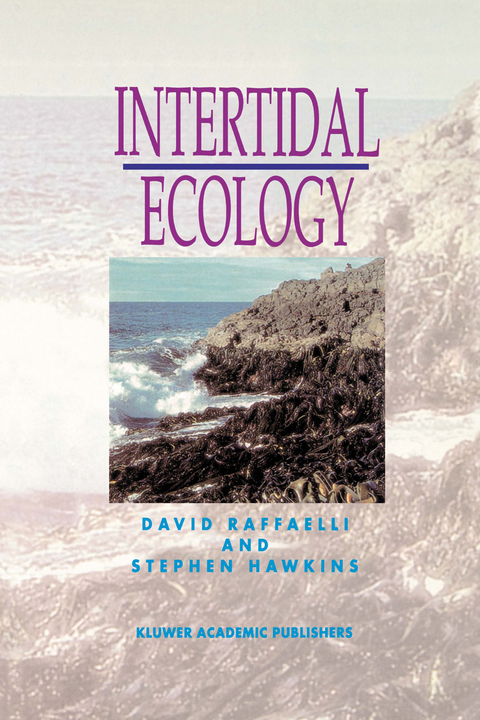
Intertidal Ecology
Chapman and Hall (Verlag)
978-0-412-29960-5 (ISBN)
1 The shore environment: major gradients.- 1.1 Four major environmental gradients.- 1.2 Interactions between gradients.- 1.3 Modifying factors.- 1.4 Comparisons with other ecosystems.- Overview.- 2 Patterns of distribution.- 2.1 Universal zonation schemes for rocky shores.- 2.2 Rocky shore zonation in different parts of the world.- 2.3 Distribution patterns on other shore types.- 2.4 The meiofauna.- 2.5 Macrophytes on sheltered shores.- 2.6 Zonation along the estuarine gradient.- Overview.- 3 Causes of zonation.- 3.1 Vertical zonation on rocky shores.- 3.2 Determinants of zonation on other kinds of shores.- 3.3 Causes of zonation along other shore gradients.- Overview.- 4 Community dynamics.- 4.1 Rocky shores.- 4.2 Sediment shores.- 4.3 Community succession.- Overview.- 5 Coping with the physical and biological environment.- 5.1 Finding a place to live.- 5.2 Coping with the vertical and horizontal gradients on rocky shores.- 5.3 Coping with life on sandy shores.- 5.4 Coping by modifying behaviour.- 5.5 Dealing with other organisms.- 5.6 Associations, mutualisms and symbioses.- Overview.- 6 The shore as a system.- 6.1 The oceanographic context.- 6.2 The flow of material and energy in shore systems.- 6.3 Links between the shore and other systems.- 6.4 Energy flow and functional interactions on shores.- Overview.- 7 Human impact on the shore.- 7.1 Collecting marine plants and animals for food, bait and curios.- 7.2 Chronic pollution.- 7.3 Acute effects on shores.- 7.4 Introduction of new species.- 7.5 Coastal zone change.- Overview.- 8 Studying shores.- 8.1 Describing the shore.- 8.2 General methods for use on both rocky and sandy shores.- 8.3 Methods applicable to rocky shores.- 8.4 Methods applicable to sediment shores.- 8.5 Long-term studies.- 8.6 Field experiments.- Overview.- References.- Species index.
...an admirable approach and style... - Biologist; ...the book is a tremendously good read. - Estuaries.
| Zusatzinfo | XI, 356 p. |
|---|---|
| Verlagsort | London |
| Sprache | englisch |
| Maße | 155 x 235 mm |
| Themenwelt | Naturwissenschaften ► Biologie ► Evolution |
| Naturwissenschaften ► Biologie ► Limnologie / Meeresbiologie | |
| Naturwissenschaften ► Biologie ► Ökologie / Naturschutz | |
| ISBN-10 | 0-412-29960-7 / 0412299607 |
| ISBN-13 | 978-0-412-29960-5 / 9780412299605 |
| Zustand | Neuware |
| Informationen gemäß Produktsicherheitsverordnung (GPSR) | |
| Haben Sie eine Frage zum Produkt? |
aus dem Bereich


